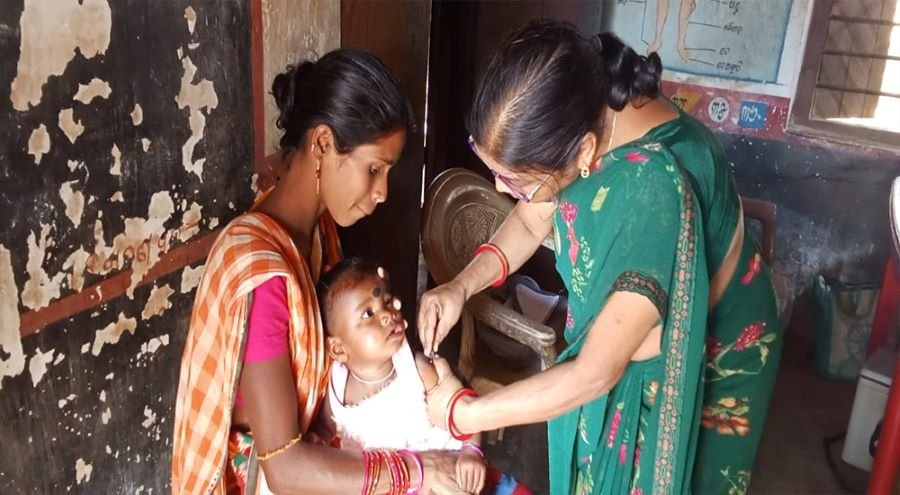United Nations theme for Women’s International Day 2024
A wake-up call to help Social and economic growth
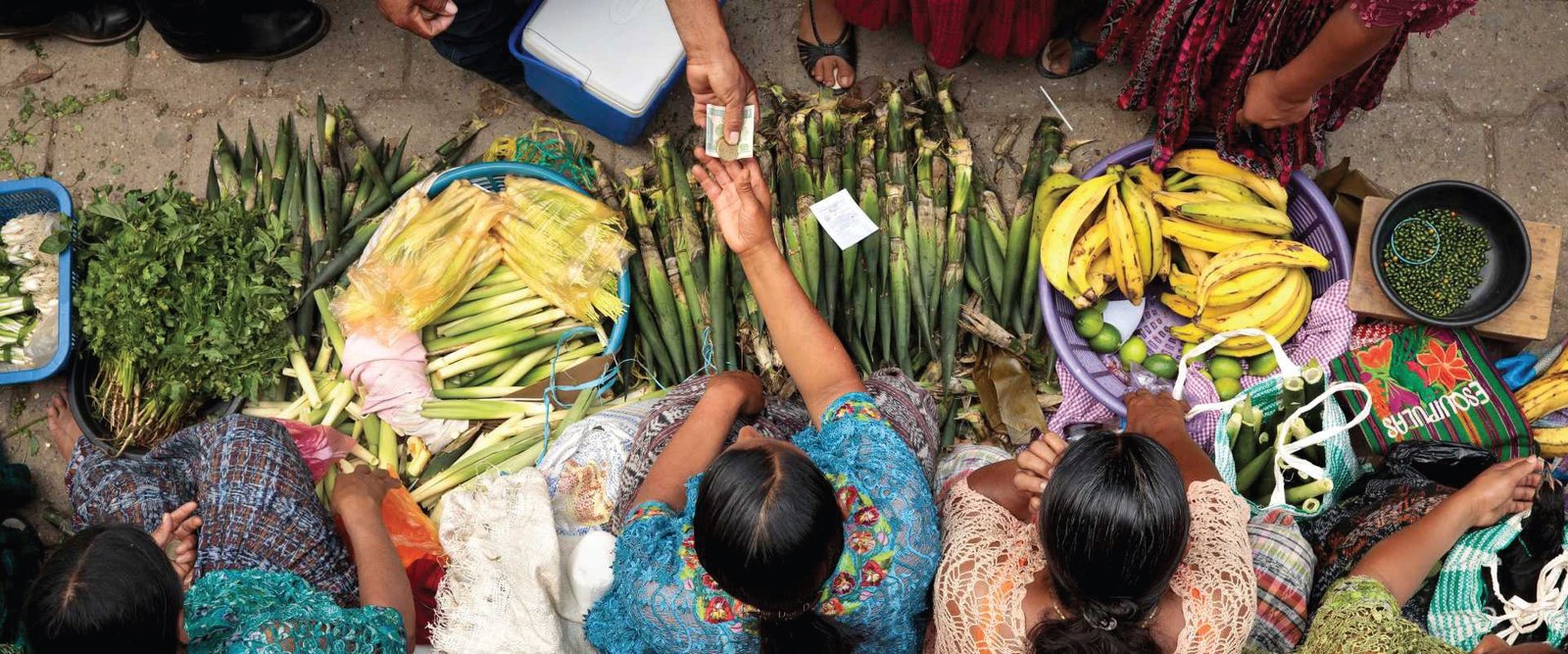
Women have fought with men as equals in health, communication, education, and administration, as caregivers, innovators, community organizers, and some of the most exemplary and effective national leaders in combating calamities and catastrophes.
March 08, each year, is celebrated as International Women’s Day. All of us would agree that the efforts of women should be celebrated every day, but we fail to do that, even at home. Hence, this day is special for women and everyone to recognize their efforts and appreciate it. International days and weeks are occasions to educate the public on issues of concern, mobilize political will and resources to address global problems and celebrate and reinforce humanity’s achievements. The existence of international days predates the establishment of the United Nations, but the UN has embraced them as a powerful advocacy tool.
The challenges they faced by women across the world were harsh, fatal, emotional and critical. We have tried to identify a few women who have demonstrated their ability to give a new meaning to leadership. It is a small tribute to the numerous women who have brought different experiences, perspectives and skills. We admit and acknowledge that many will remain unknown faces.
Efforts of Women in every field have ensured more acceptance than ever before of their irreplaceable contributions to decisions that work better for all. Amidst the multiple crises that put immense pressure on communities, achieving gender equality is more vital than ever. We must ensure women’s and girls’ rights across all aspects of life; this is the only way to secure prosperous and just economies and a healthy planet for future generations. According to the United Nations, achieving gender equality and women’s well-being in all aspects of life is more crucial than ever if we want to create prosperous economies and a healthy planet. However, we face a key challenge: the alarming $360 billion annual deficit in gender equality measures by 2030, according to the UN.
This year, on March 8, 2024, International Women’s Day is celebrated under the theme ‘Invest in women: Accelerate progress” Take a stand with us using the hashtag #InvestInWomen. We feature five Women from different fields who represent their existence in power, struggle, challenge, existence and justice.
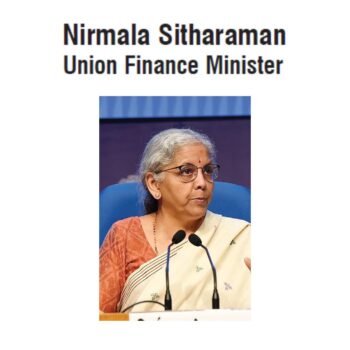
“The Nari Shakti Vandan Adhiniyam (Women’s Reservation Bill) is a pivotal instrument for achieving political empowerment. When it comes to matters concerning women, our government refrains from doing politics.”
Nirmala Sitharaman was born in Madurai, Tamil Nadu, on August 18, 1959. She graduated from Seethalakshmi Ramasamy College, Tiruchirappalli and obtained her MA (Economics) from Jawaharlal Nehru University, New Delhi. Indo-European Textile Trade was the focus of her draft Ph.D. thesis.
Sitharaman has served as the union Defense minister since 2017. She is a Rajya Sabha Member of Parliament (MP) from Karnataka. In 2014, she was elected as Rajya Sabha MP from Andhra Pradesh. She has also served as the Minister of State for Finance and Corporate Affairs and later the Minister for Commerce and Industry with Independent Charge.
As the defense minister, Sitharaman is credited with expediting the decision-making process relating to procurement in the defense sector. She constituted a Defense Planning Committee to formulate an “action plan” to overcome the nation’s various security challenges effectively.
Sitharaman joined the Bhartiya Janta Party (BJP) in 2008 and has served as a national spokesperson for the party since 2010. She was an assistant to the Economist in the Agricultural Engineers Association, UK in London. She subsequently worked as Senior Manager (Research and Analysis) with Price Waterhouse, London. During this time she also briefly worked with BBC World Service. On her return to India, she served as Dy. Director of the Centre for Public Policy Studies at Hyderabad. Her interest in education led her to lay the Foundation of ‘Pranava’ a reputed school in Hyderabad. She was a member of the National Commission for Women from 2003-2005 and was instrumental in voicing various issues of women’s empowerment.
Sitharaman is married to Dr. Parakala Prabhakar, an alumnus of Jawaharlal Nehru University and London School of Economics, and they have one daughter. She is an avid reader. She is currently steering India’s economy out of one of the toughest economic crises in history. In the second term of the BJP government in 2019, Nirmala Sitharaman was given two key portfolios: the finance and corporate affairs ministries. Nirmala Sitharaman remained one of PM Modi’s most trusted confidants and was charged with the defense ministry during the first stint of the Modi government. Initially, she had been made a Minister of State in 2014 and given the portfolio of commerce & industry with independent charge. She was the first woman appointed fulltime Defense Minister of India in September 2017.
While presenting the Interim Budget 2024-25 in Parliament today said, “The empowerment of women through entrepreneurship, ease of living, and dignity for them has gained momentum in these ten years.”
Deepika Kumari’s life has been full of ups and downs. Deepika’s father drives an auto rickshaw, and her mother is a nurse. Deepika is a female archer from India.
Born amid poverty and limited women’s rights in the village of Ratu, India, Deepika Kumari rose to become the No.1 female archer in the world at 18, states Netflix, which produced a 39-minute documentary on her – Ladies First. Deepika Kumari’s life has been full of ups and downs. Deepika’s father drives an auto rickshaw, and her mother is a nurse. Deepika is a female archer from India.

However, the wheels of fortune began to turn after she managed to join a state-run archery academy that provided free training facilities and equipment for underprivileged athletes, writes Olympics.com on its website. In an interview on Parent circle. com, an online portal, Deepika spoke about the importance of more women competition to do well at the international level. “The main reason why India is lagging behind in this regard is that we don’t have enough competitions or tournaments for women to compete in. Participating in tournaments is crucial to improving your game.
When you play in a tournament, you learn what your weaknesses are and what areas you need to improve. You get a sense of where your game is, at which level. And you know what you have to achieve.” She further explains in the same interview, “You will see many young players doing well in national events but failing at the international level.
This is because they tend to overthink or become nervous, this makes them forget what they have to do during the match. That’s why it’s important to participate in many tournaments. If you play more, obviously, you learn to hold your nerve and control your fear. You won’t believe it, but abroad, they have 23 tournaments every month. We need to have more competitions; maybe having national tournaments once a month would help our players.
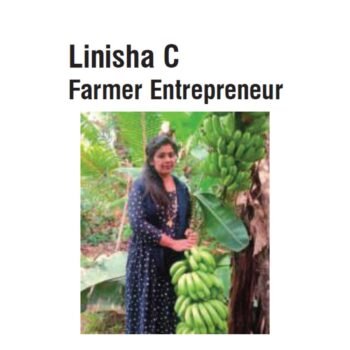
Linisha is a progressive farmer in District- Calicut, Kerala, who has carved her name in the agriculture field. She was initially not interested in agriculture. She was interested in fashion designing and later shifted to farming through the support, confidence, and encouragement she received from a Facebook Agriculture group in which she was an active member. She initially started growing bag cultivation of vegetables with about 50 bags, presently cultivating more than 300 bags with vegetables such as cabbage, cauliflower, carrot, beetroot, annual moringa, capsicum, brinjal, amaranth, chilli, tomato, okra, Kasturi turmeric.
The turning point was when she attended a week-long training program on ‘Nursery Management’ under Skill Training of Rural Youth (STRY) in December 2020. The program was organized for rural youth by Krishi Vigyan Kendra, Indian Institute of Spices Research (ICAR), Kozhikode, through ATMA, Kozhikode with the support of MANAGE, Hyderabad. She successfully utilized the knowledge and skills acquired during the training to increase her farm income and become a role model farmer and entrepreneur for others to emulate.
She is practicing coconut-based mixed cropping with vegetables, fruits, livestock, poultry, rabbit rearing and ornamental fish culture as subsidiary enterprises. She also grows and multiplies various indoor and ornamental plants. As a subsidiary enterprise, she maintains about 100-layer chicks, rabbits, and ornamental fishes at her home.
She supplies vegetable seeds and organically produced vegetables from her garden to neighboring farmers. She is also delivering quality desi chicks to those in need. Many school students and enthusiastic farmers visit her farm, and she is very interested in educating and motivating them in various farming practices. In addition to farming activities, she runs a cake-making unit with FSSAI license and supplies value-added cakes using eggs from her farm, thus ensuring healthy and cost-effective cakes to people in need.
She has received the best Kitchen Garden (grow bag cultivation) award through the Facebook group from Principal Krishi Officer (2019). Received an award for best coconut-based intercropping through the Facebook group from the State Agriculture Minister (2019). Felicitated by local schools for various agricultural activities (2020).
Sudha Murty, travelling 20 days a month, believes in measuring the happiness of all her beneficiaries to see if a true impact has been achieved. As Chairman of the Infosys Foundation, she has supported several initiatives that help the underprivileged members of society working in remote areas across India. With a focus on education, healthcare, rural development, destitute care, art & culture, mid-day meal schemes and water projects, the Infosys Foundation has made unparalleled contributions that have positively impacted millions of lives over the years.
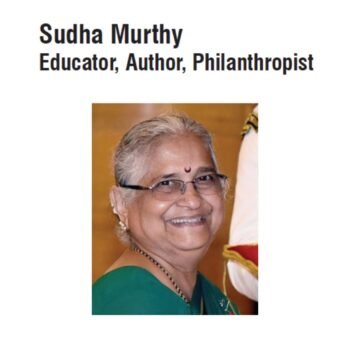
An electrical engineer from the Indian Institute of Science, Bangalore. She began her profession as a development engineer with Tata Motors. She has also taught software engineering at Bangalore University. She is an English and Kannada writer with 24 books and 156 titles – including books, non-fiction, travelogues, specialized books, and journals. Her books have been converted into all significant Indian dialects. She has received awards for her charitable and abstract endeavors.
A Padma Shri Awardee from the Government of India, she has seven doctorates from various colleges in India. She is a woman of great Caliber, a good mind and one of the best authors. Most of her books are must read type books.
When she relinquished her position as Chairperson of Infosys Foundation, she made some critical points on CSR. “I am grateful that I have had the opportunity to walk the path of philanthropy at Infosys Foundation for the last 25 years. The Foundation opened my eyes to the true state of my country and the needs of the common man. The rewarding journey of Infosys Foundation had many supporters – my family, my team at work, the senior management, the various employees, and the beneficiaries themselves. I cherish the memories we have made, and I will continue on my own on my journey of helping the underprivileged. I wish the Infosys Foundation all the best. When the Foundation started, I was the mother and the Foundation was my child. Today, as I leave, I am satisfied to see that Foundation has become a mother and I the child,” she stated.
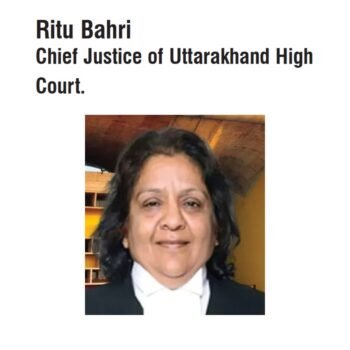
Ritu Bahri belongs to a family of illustrious Lawyers. Her great-grandfather, Late Karam Chand Bahri, was a well-known Lawyer who had earned respect for the civil cases he took up. She is well known for her competency, integrity, conduct, and character among her peers and the legal academic community. Students of Law look up to her judgements as critical to their growth and development as lawyers. It is noteworthy that the Supreme Court Collegium while recommending her name as the new Chief Justice of Uttaranchal High Court, mentioned her extensive experience in dispensing justice in one of the largest High Courts in the country.
Her grandfather, the Late Som Dutt Bahri, also practiced civil law and was a member of the Legislative Assembly, Punjab, from 1952 to 1957. Her father, Justice Amrit Lal Bahri, retired as a Punjab & Haryana High Court Judge in 1994. She studied at Carmel Convent School, Chandigarh, and graduated in Economics (Hons.) from Government College for Women, Chandigarh, in 1982 in Ist Division. After that, she did her law from Punjab University, Chandigarh, in 1985 in Ist Division. She was enrolled as an Advocate in 1986 with the Bar Council of Punjab & Haryana and started practicing in the Punjab & Haryana High Court. She was appointed as Assistant Advocate General, Haryana, in March 1992.
After that, she was appointed Deputy Advocate General Haryana in August 1999 and Senior Advocate General Haryana in December 2009. While representing the State of Haryana, she handled several cases relating to service matters, land acquisition, taxation, revenue, labor, and MACT cases. She was elevated as Judge of the Punjab & Haryana High Court on August 16, 2010.
Her colleagues in the legal fraternity applaud her contribution to the judiciary as an important step in ensuring that cases are disposed of without undue delay. During her tenure of 13 years as a Judge of the High Court, she authored 843 reported judgments, of which 247 were delivered during the last five years. She specialized in service and tax matters. During her 24 years of practice, she also served as Assistant Advocate General, Deputy Advocate General, and Senior Deputy Advocate General for the State of Haryana.





